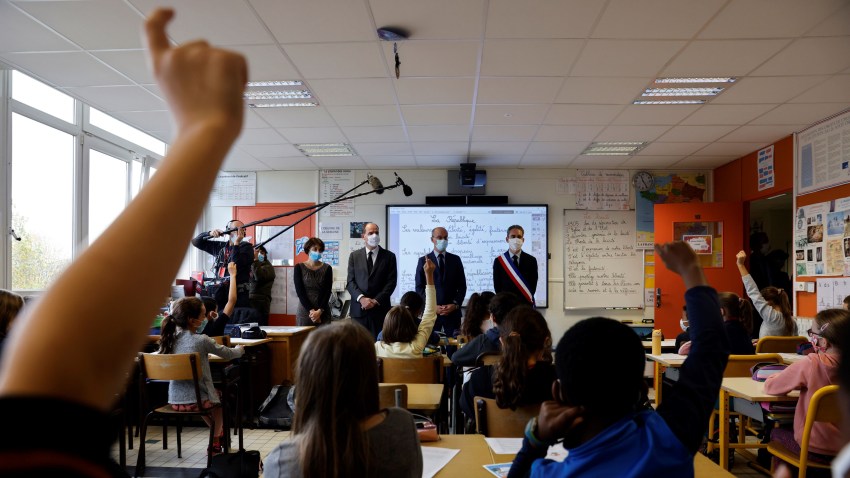Editor’s note: The following article is one of 30 that we’ve selected from our archives to celebrate World Politics Review’s 15th anniversary. You can find the full collection here.
When Rachid Zerrouki, a teacher in Marseille, headed back to his classroom last Monday, he braced himself for the worst. He hadn’t seen his students since the brutal killing of Samuel Paty, a 47-year-old middle school teacher in the Paris suburb of Conflans-Sainte-Honorine, who was beheaded by a young Chechen refugee days after he showed his class cartoons of the Prophet Muhammad during a lesson about freedom of expression. With school back in session after a holiday break, the Education Ministry had instructed teachers to have students participate in a minute of silence to express solidarity with Paty and all teachers throughout France.
Zerrouki, who teaches middle school students facing academic difficulty, had warily watched the country react to Paty’s murder. There was unity, at first, with thousands gathering nationwide in rallies to honor Paty and defend freedom of expression. But soon after, his killing was swept up in a debate that has become standard fare after terrorist attacks in France: a national reckoning over Islam and its place in a society that holds fast to laicite, France’s particular vision of secularism, and other “republican values.”

